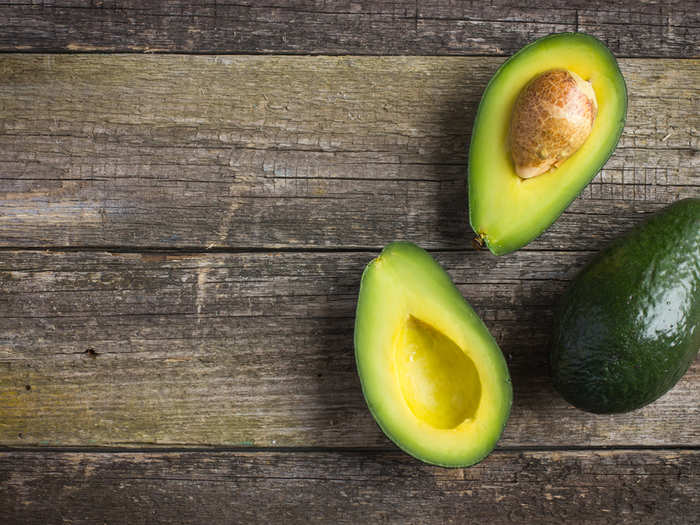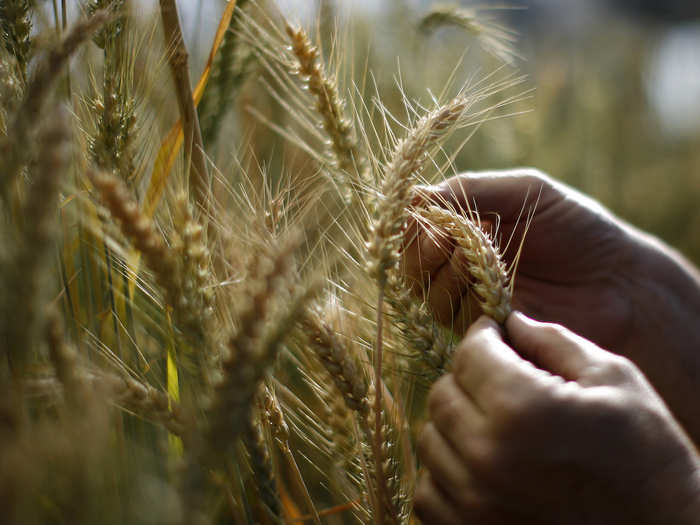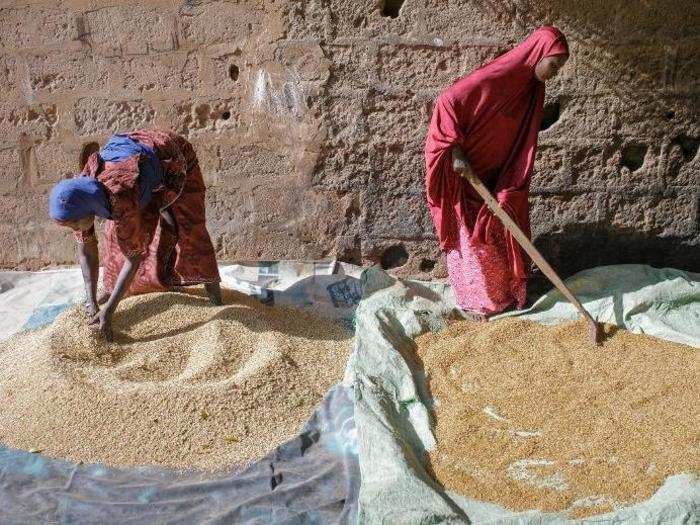Apeel and Cambridge Crops are putting invisible coatings on foods like avocados and salmon.
Apeel and Cambridge Crops both want to make sure food stays fresh for longer. These companies have created invisible, tasteless coatings that keep food from rotting.
Apeel's coating is plant-based and can be applied to fruits and vegetables, while Cambridge Crops has developed a coating made of water and silk. The coating from Cambridge Crops can be used on up to 80% of foods, including seafood, meat, and produce.
By eliminating food waste — and the need for food packaging — the two companies are helping reduce greenhouse gas emissions and conserve water.
Kernza has created a strain of wheat that lives for more than two years.
Wheat is the world's most widely-grown crop, and one of our most important food sources, alongside corn and rice. The more efficiently we can produce wheat, the more we can conserve water and reduce the amount of crops that are destroyed by pathogens and pests.
Kernza's solution goes beyond that by creating a new strain of wheat that absorbs more carbon dioxide from the soil than traditional wheat. The company's strain also lives for more than two years (the typical strain only lasts one growing season), meaning it can produce more yield for farmers.
C16 Biosciences has found a new way to make palm oil (the stuff that's in shampoo and chocolate).
Palm oil is a staple ingredient in many everyday products, including shampoo, detergent, lipstick, and diesel fuel. It's also found in foods like chocolate, bread, margarine, and pizza dough.
But there are serious consequences to the way it's produced. To clear the way for palm oil plantations, companies have resorted to deforestation, which produces 11% of the global total of greenhouse gas emissions. In Borneo, cutting down forests for the purposes of palm oil production created the world's largest single-year increase in carbon emissions in two millenniums.
To solve this problem, C16 Biosciences created a technology that ferments palm oil the same way you would beer.
Babban Gona is helping farmers store their crops.
Unlike the other companies, Babban Gona doesn't rely on advanced technology. Instead, it's solving a problem for farmers in Nigeria who lack a place to store their crops. By providing shared facilities for farmers, the company allows them to wait until the market is hot to sell their goods. This helps cut back on food waste and improves local incomes.
If the world reduced just half of its food waste by 2050, it could cut back on more than 70 gigatons of carbon dioxide. That brings us closer to avoiding the worst-case climate scenario of extreme floods, heat, and drought.
The Intergovernmental Panel on Climate Change (IPCC) estimates that we need to reduce 100 gigatons of carbon dioxide by 2100 to avoid catastrophic effects of climate change.




